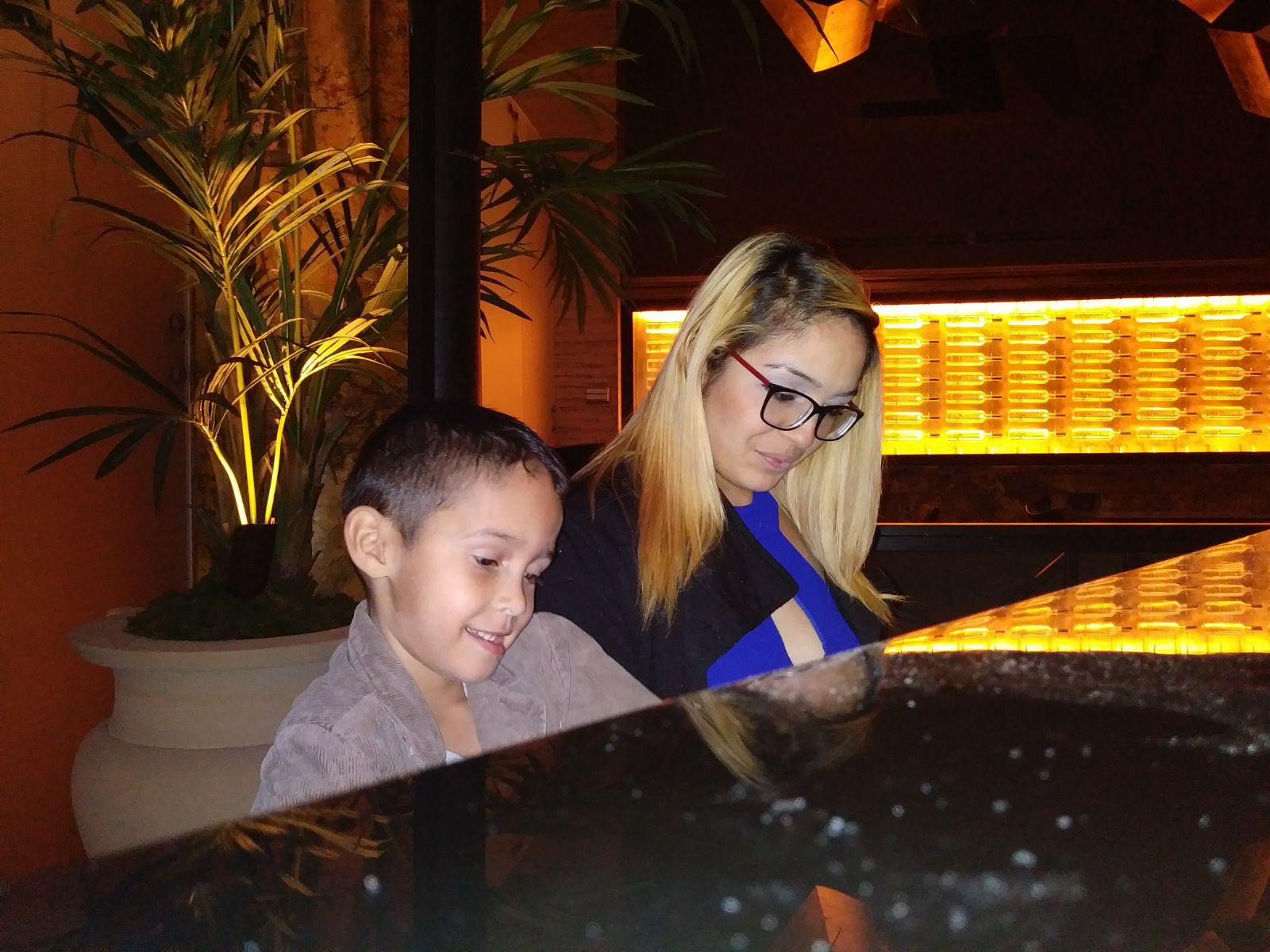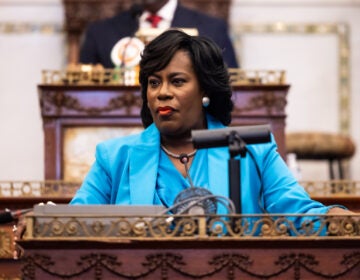Puerto Rican evacuees in Philadelphia will lose temporary housing on Valentine’s Day and there is no plan for what’s next

Muriel Rivera, 28, has been living with her 6-year-old kid in a downtown Philadelphia hotel since November. She had to evacuate the home she lived in with her mom, dad and son in September when Hurricane Maria devastated her town in the mountains of Utuado, Puerto Rico.
Rivera registered her son Yeriel at Taylor Bayard School in North Philadelphia, thinking she could rent a simple apartment for them to start a new life in a bilingual neighborhood they could call home. But she hasn’t been able to secure a stable job yet, and the hotel room where she sleeps is the only place she’s been able to call her own.
“It’s been hard,” Rivera said in Spanish. “I don’t have anyone and I have to do it all by myself, so you have to take risks. But I’m strong and I would do anything for my son — run up and down the streets, whatever it takes for him to be OK. If my son is OK, I’m fine.”
But on February 13th, the same day the Love Park statue will finally return to its home across from city hall, Rivera and other displaced Puerto Rican families receiving aid for temporary housing in Philadelphia will have to pack their belongings to leave the next day. It’s not only Philadelphia. In cities around the country, people like Rivera and her son will be losing the federal voucher that was paying their rent.
“In the streets,” said Rivera when asked where she’s planning to stay. “I don’t have anywhere else to go, I don’t know where I will go.”
She is not the only one unsure about what’s next. Unidos PA PR is a coalition of local organizations, businesses and local government leaders working to create a transitional safety net for people like Rivera, as well as those still coming and in need of assistance. That net has proven elusive. Councilwoman María Quiñones Sanchez said in an email that Unidos PA PR is working with the city to help families, but “unfortunately we still do not have a plan for the fast-approaching deadline.”
There are 184 Puerto Rican families like Rivera’s benefiting from the FEMA’s Transitional Shelter Assistance (TSA) program in Pennsylvania. FEMA Spokesperson Daniel Llargues said numbers by county or city are not available. On December, under a request from Puerto Rico’s governor, the TSA hotel program was extended from Jan. 14 to March 20, with an eligibility review on February 13. Llargues said 14 families in the state were not eligible to stay at their hotels. One of those families is Rivera and her son.
Will Gonzalez is the executive director of Ceiba, a Latino community organization based in Norris Square Park. He thinks many of the other families are in Philadelphia too. In the last few weeks, Ceiba hosted two FEMA legal clinics with the Hispanic Bar Association and pro-bono attorneys to help people to get continued federal assistance.
“A lot of the folks that we saw — we saw 100 plus people — had what I call a Valentine Day’s letter telling them that they need to get out of the hotel or the temporary shelter assistance that was provided to them on February 14th because FEMA, quote on quote, somehow determined that the place they were living in Puerto Rico when the hurricane occurred is now habitable,” Gonzalez said. “But the word habitable is a subjective term, more or less, and so those folks were looking to appeal that decision. We don’t know yet what the outcome is going to be for some of those cases.”
Since hurricanes Irma and Maria hit the island in September, Philadelphia has received more than 2,000 evacuees. Yet the city has received no formal recognition as a host to evacuees and isn’t currently eligible for the same federal aid that Florida will receive thanks to an agreement by Puerto Rico and Florida Gov. Rick Scott that recognizes it as a “host state.” That status allows for grant dollars to flow into Florida’s cities in the same way that FEMA supported the resettlement of Hurricane Katrina evacuees in Houston and other places after the storm made their homes inhabitable. In Pennsylvania, advocates have called on Gov. Tom Wolf to go to Puerto Rico and build the partnership needed for a similar agreement but most agree that the chances of that happening are slim.
Without decisive state or federal action, city agencies, community-based organizations and local businesses have been left to take the lead on short-term disaster relief. And they have done a lot.
In December, the relief effort was struck a blow when the Philadelphia Emergency Management Disaster Services Assistance Center, who assisted 1,952 evacuees across 875 families, closed. Unidos PA PR is also planning to dissolve as a group in March, but continue working together individually. As people’s needs change and short-term relief strategies bump up against the challenges of long-term resettlement needs, local organizations find themselves searching for a sustainable way forward.
“We in the nonprofit community have to come up with ways to meet that need and meet that challenge,” Gonzalez said. “We’re are trying and working together to meet the need because these are now fellow Pennsylvanian, fellow Philadelphian, fellow human beings, right? Our caring for one another is not just one day a week when we’re sitting in some house of worship.”
Rivera is grateful for being able to stay with other six families at The Ben Franklin House, one of the hotels in FEMA’s TSA program. But the posh hotel feels a bit unfriendly and she’s far away from her son’s school and the neighborhood where she is comfortable.
“The hotel is very expensive, I don’t complain. I feel like a rich person there,” Rivera said. “But I also feel uncomfortable because a lot of people look us down because they know we’re from Puerto Rico.”
If she could make a wish, Rivera would like to have a little help to pay the $700 deposit to rent an apartment in North Philadelphia. With that and a job, she could keep going on her own. But she’d rather sleep in the streets than go back to Puerto Rico.
“What would I do there without a job? I would be worse than here,” Rivera said. “I’m hopeful that I will get something. I’m a warrior and I’ve fought a lot to get where I am now.”
WHYY is your source for fact-based, in-depth journalism and information. As a nonprofit organization, we rely on financial support from readers like you. Please give today.







